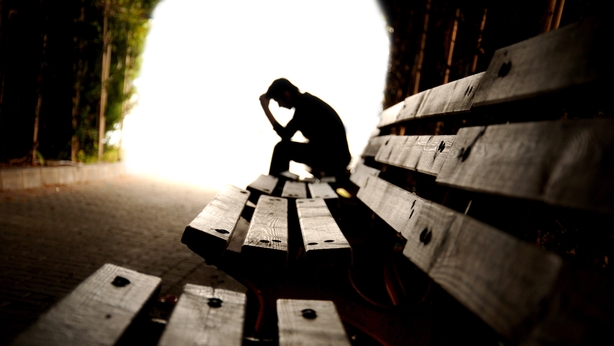Analysis: the Power Threat Meaning Framework is a major attempt to provide a comprehensive, evidence-based alternative to the diagnostic model
Mental health seems to be top of everyone’s agenda at the moment. However, very few people are challenging the dominant way of thinking and talking about these devastating and painful experiences. The message that bipolar disorder or schizophrenia or depression are "illnesses like any other" is actively promoted and rarely questioned.
Meanwhile, few people are aware that the senior clinicians who draw up the diagnostic manuals have admitted that these labels are not valid scientific categories. The suffering is absolutely real, but none of the diagnoses are supported by actual evidence of, for example, "chemical imbalances" or genetic flaws. The New Scientist summarised it like this: "just over a year ago, the world’s largest mental health research organisation signalled its intent to tear up 60 years of psychiatry and start again….Almost everyone agrees that the old system is no longer fit for purpose and that patients deserve better. Delivering something better, however, is going to be a long, slow process."
Given this state of affairs, it is not surprising that rates of both mental distress and prescribing are rising rapidly, with the latter apparently making no impact on the former. Alongside this is a vocal and growing movement of service users (sometimes identifying as "survivors" of the mental health system) who say they have been not just un-helped but harmed by the current approach, and who are demanding change.

In January, a group of psychologists and former users of services launched the result of a five year project to outline a radically different approach to mental distress, unusual experiences and troubled behaviour. With lead authors Dr Lucy Johnstone and Professor Mary Boyle, The Power Threat Meaning Framework was funded by the Division of Clinical Psychology of the British Psychological Society. A public lecture on the Framework was delivered to young people’s mental health charity Jigsaw in Dublin last month.
The Framework is a major attempt to provide a comprehensive, evidence-based alternative to the diagnostic model. Its central aim is to restore the links between personal distress and wider issues of abuse, adversity, poverty, inequality, discrimination and social injustice in all its forms. In doing so, it also challenges the standards that can put us under unbearable pressure to look, achieve, relate, work, play, express our sexuality, bring up our children and generally live our lives in line with accepted expectations in an increasingly individualistic, fragmented and unequal society.
It is not surprising that rates of both mental distress and prescribing are rising rapidly, with the latter apparently making no impact on the former
The Power Threat Meaning Framework hinges on the answers to four key questions. These are an expansion of a popular slogan used by the service user/survivor movement ("instead of asking what’s wrong with me, ask what’s happened to me").
▪ What has happened to you? (How is Power operating in your life?)
▪ How did it affect you? (What kind of Threats does this pose?)
▪ What sense did you make of it? (What is the Meaning of these situations and experiences to you?)
▪ What did you have to do to survive? (What kinds of Threat Response are you using?)

The Framework is based on a great deal of evidence about the negative impact of various kinds of power in people’s lives, the kinds of threat that misuses of power pose to us and the ways we have evolved and learned as human beings to respond to threat. In traditional mental health practice, the resulting threat responses are sometimes called "symptoms", but the Framework sees them as originating in creative survival strategies.
The Framework also looks at how we make sense of these difficult experiences and how messages from wider society can increase our feelings of shame, self-blame, isolation, fear and guilt. It shows why those of us who do not have an obvious history of trauma or adversity can still struggle to find a sense of self-worth, meaning and identity, whether or not we have been in contact with the mental health system. The Framework thus does not recognise a separate group of people who are "mentally ill".
Many people have testified that the stigma attached to psychiatric diagnoses and labels like "schizophrenia" and "personality disorder" may outweigh any benefits
By providing a flexible structure for thinking about these questions, the Power Threat Meaning Framework can be used to help people to create more hopeful stories or narratives about their lives and the difficulties they may have faced, instead of seeing themselves as blameworthy, weak, deficient or "mentally ill". These narratives are supported by a provisional set of broad, evidence-based, patterns of response to threat.
In contrast to medical patterns, the ones identified by the Framework are based on meaning in its widest sense – personal, social and cultural. This allows us to acknowledge and respect the very different expressions and experiences of distress that are found across the globe, rather than seeking to assimilate them into the dominant Western model.
Most mental health professionals have long known that the diagnostic model does not do justice to the complex lives of people who end up in services. Many service users have testified that the stigma attached to psychiatric diagnoses, particularly labels like "schizophrenia" and "personality disorder", may outweigh any benefits. In highlighting the links between wider social factors and the resulting emotional distress or troubled behaviour, the Framework has important messages for public policy and broader issues of social justice. The widespread interest in the Framework suggests that we may be at a turning point in our understanding of one of our most pressing social concerns.
Dr Lucy Johnstone is a clinical psychologist, trainer, speaker and writer and the former Programme Director of the Bristol Clinical Psychology Doctorate
The views expressed here are those of the author and do not represent or reflect the views of RTÉ

